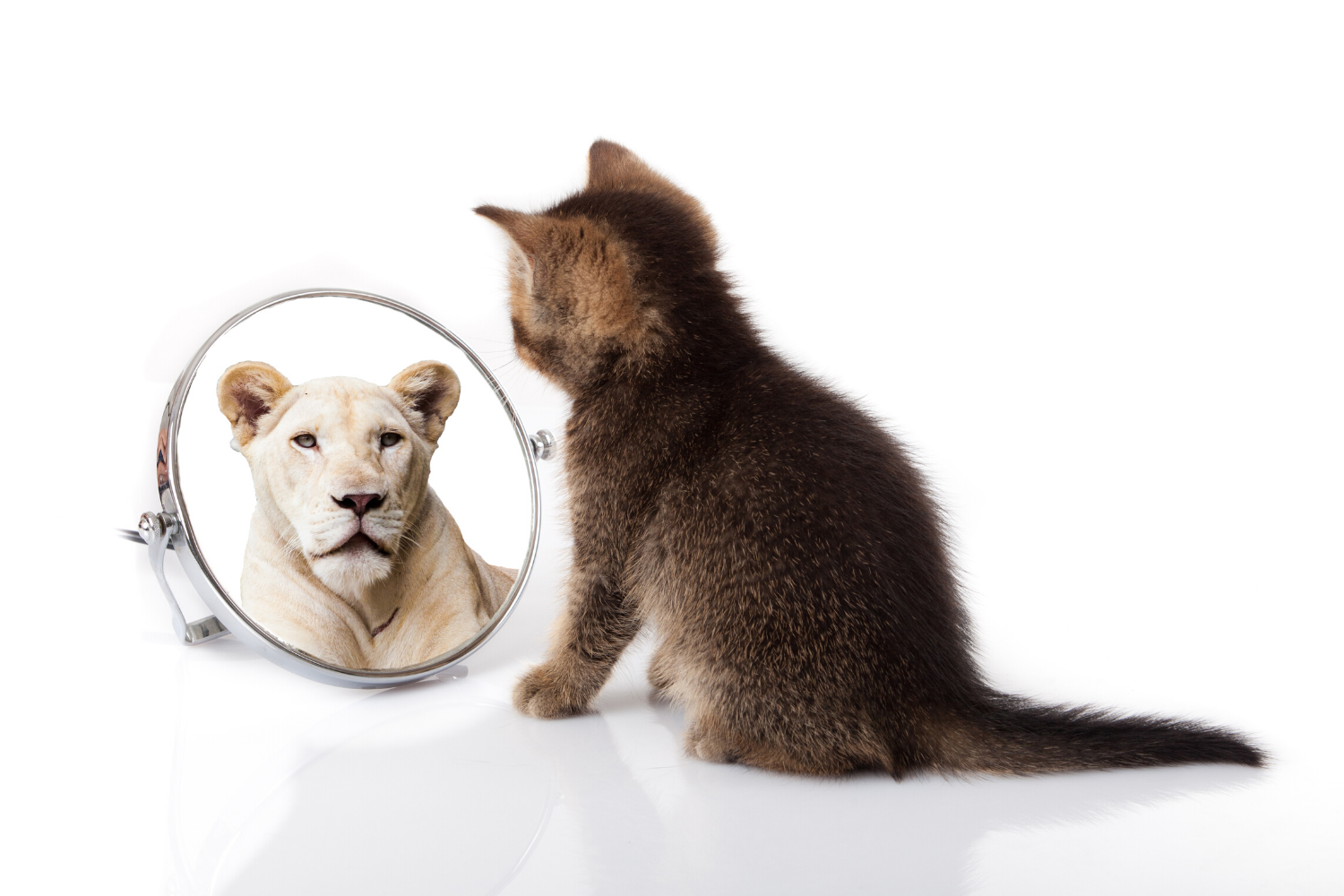One of the beauties of homeschooling is that we can protect our children from political agendas that don't serve mankind, and the diversity issue may be one of them.
It mirrors the old military strategy of Julius Caesar's, "divide and conquer."
And Julius Caesar was no dummy.
So why is diversity the wrong conversation to have with your children? The best illustration for arguing against a topic which has divided so many of us is the example of my mother.
My mother was different from the social-justice warriors you hear about today. An original warrior, she never preached to anyone, she wasn't spouting angry rhetoric about perceived wrongs, she never felt better than you or me because of the services she did; she just helped where she saw that people needed help.
When I was a young child, my mother was very active in the Civil Rights Movement, a violent and bloody time in America. Despite the dangers, she relentlessly marched with the oppressed in their struggle for equality, more worried about their safety than she was her own.
The World Encyclopedia even included a picture of her and my sister Kathleen, who had both flown across the country to demonstrate with hundreds of other people in the historic march on Selma, Alabama, led by Martin Luther King, Jr., in 1965.
My mother is on the left, my sister is holding the sign.
As I became a young woman, my mother, who was now middle-aged, served on the board for the homeless people where she listened to their stories, helped them get shelter, and assisted people in getting back on their feet.
She said to me once that homeless people weren't the bums others thought they were; they were usually people who'd had some hardship in life with no one to fall back on for support, and they'd ended up on the streets.
Her heart always went out to the underserved amongst us.
When I hit my middle-ages, my mother, who was now an old woman, served as a volunteer teaching the Hispanic community English. She did that until she became ill at the age of ninety.
To my mother, each life mattered because each life contained a human heart and that human heart possessed inherent dignity and worth. That was the ideal my mother embodied and lived by.
Color, religion, race; those weren't labels she understood.
She recognized that we all suffer the loss of loved ones, we all worry about our children, most of us struggle with our siblings, some of us wonder if God exists and many of us question why so much killing and suffering happens in the name of religion.
There’s more sameness in us than there is difference.
The Diversity Rhetoric Questioned
Some years back, after my mother passed away, I had a series of experiences which led me to question the new diversity rhetoric that had emerged, such as the time I was asked to give a talk on education to a group of mothers from varying backgrounds.
In defense of diversity, a woman of color felt it her duty to ask me why I only promoted books written by white people. Well, I don't, I explained. I promote books for the quality of the writing and content, not because of the skin color of the author.
“Out beyond ideas of wrongdoing and rightdoing, there is a field. I’ll meet you there. ”
The fact is that there are only six canons of great literature in the world and one of them belongs to the West.
I had wanted to introduce these women to our body of great books for children—not all of whom were written by white people—but this particular mom could only see the color of my skin and what she thought was the color of the authors' skin.
Another experience was with a friend who espoused diversity ideals. When Trump became president, this particular friend of mine from an Eastern country grew livid and said to me, "The white people have shown their true colors!"
I had never seen my friend in terms of her skin color, yet she had just revealed that that was exactly how she saw me. I was her "white" friend and now my people had shown their true colors.
But the experience that took the cake was when an academic corrected me after I objected to the racism of a certain "movement" which was in vogue at the time.
She informed me that I could not accuse other people of being racist because I was white and only white people were racist. Her lack of logical reasoning dumbfounded me.
When you have lived in many different countries, as I have, you learn about different cultures and different ways of viewing the world. I can tell you first-hand that I have never met a people who did not think they were better than another people.
In every country I’ve lived in, there’s always been the majority group who believed they were better than the minority group or they were better than the people of a neighboring country.
And then there's the individuals; us. Have you ever known an individual who did not express a judgement on another individual, either verbally or by inference?
We expose our petty, self-righteous arrogance every day; she gossips too much, he's too ambitious, he's too materialistic, she's too bossy.
Whatever they is, we is above it, right?
“We’re all islands shouting lies to each other across seas of misunderstanding.”
We all contain seeds of the virtues in our hearts such as compassion, generosity, temperance.
However, our hearts also contain seeds of the vices, such as envy, anger, greed.
But the crowning vice is arrogance, and some of us cultivate the roots of it more than we like to admit, even to ourselves.
Yet, what is racism, if not arrogance?
The Danger of the Group
There are a lot of diverse groups in America and they largely stick to their own kind. Maybe it's a kind of religion; or a kind of race, or a kind of political ideology, but "groups" tend to keep to their own, which makes sense because, after all, they are groups.
But there is something dangerous about a clustering of kind when we base our identity on the "group" we belong to and see people outside of the "group" as the "other."
Barbara Coloroso, a parenting expert who had studied the genocide in Rwanda, said that the seeds of genocide take root when we objectify a group of people as "other."
Rather than see them as fellow human beings traveling with us through the journey of life, we see them as "different" from us.
And that's the crux of the matter. When we teach about diversity, we are teaching about differences, we are teaching about the "other."
If we allow our identity to be based on the identity of a particular group instead of our shared humanity, we lose sight of the inward bonds of our collective hearts.
“If we have no peace, it is because we have forgotten that we belong to each other.”
It's not that we can't be a member in a group, but let's not be of the group. And if we have to identify with a group, then let's identify with the group of human beings who shed tears of joy and sorrow for all the same things.
That was the group to which my mother belonged.
Instead of teaching our children about our differences, I'm suggesting we raise our children to focus on our samenesses.
Genocide is genocide; it doesn't matter who is committing it or who it's being committed against.
When it comes to the innocent slaughter of women and children; regardless of their race, religion, or color, who are we being if we don't stand on the side of mercy?
Who are we when we raise our children to think in terms of "otherness" instead of the common bond of the human heart?
When we dismiss a child's book, not on whether or not the book is worth reading, but because of the skin color of the authors, haven't we ourselves nurtured the seed of genocide?
Upcoming FREE Masterclass! Discover 3 Homeschooling Mistakes No One Tells You About
with Liz Hanson
Don’t miss our free download, Ten Books Every Well-Educated Child Should Read.
When you join the Smart Homeschooler Academy online course for parents, Liz will share her 6-step framework, so you can raise children of higher intelligence, critical thinking, and of good character.
As a homeschooler, you will never have to worry about failing your children, because working with Liz, you will feel confident, calm, and motivated; as she guides you to train your children’s minds and nurture their characters.
Teach your child to read before sending him to school! Learn more about Elizabeth's unique course, How to Teach Your Child to Read and Raise a Child Who Loves to Read.
For parents of children under age seven who would like to prepare their child for social and academic success, please begin with Elizabeth’s singular online course, Raise Your Child to Thrive in Life and Excel in Learning.
Elizabeth Y. Hanson is a homeschooling thought-leader and the founder of Smart Homeschooler.
As an Educator, Homeschool Emerita, Writer, and Love and Leadership Certified Parenting Coach, she has 21+ years of experience working in education.
Developing a comprehensive understanding of how to raise and educate a child, based on tradition and modern research, and she devotes her time to helping parents to get it right.
Elizabeth is available for one-on-one consultations as needed.
"I know Elizabeth Y. Hanson as a remarkably intelligent, highly sensitive woman with a moral nature and deep insight into differences between schooling and education. Elizabeth's mastery of current educational difficulties is a testimony to her comprehensive understanding of the competing worlds of schooling and education. She has a good heart and a good head. What more can I say?”
—John Taylor Gatto Distinguished educator, public speaker, and best-selling author of Dumbing Us Down: The Hidden Curriculum of Compulsory Schooling





























